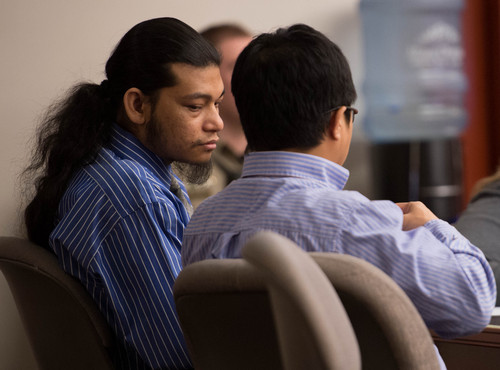This is an archived article that was published on sltrib.com in 2014, and information in the article may be outdated. It is provided only for personal research purposes and may not be reprinted.
The story unfolding this week in 3rd District Court in Salt Lake City is heartbreaking.
Nearly six years after 7-year-old Hser Ner Moo was found dead, facedown in a bathtub after having been beaten and sexually abused, fellow Burmese refugee Esar Met is on trial, accused of her murder.
The girl's parents and two brothers are expected to take the stand Wednesday.
On Tuesday, Salt Lake County prosecutor Matthew Janzen laid out the state's case against Met, and defense attorney Michael Peterson countered with details of the pair's friendship, describing games they played, bicycle rides and at least one shared meal. Peterson argued no evidence proves Met killed the girl.
His trial is expected to last three weeks, laying out in great detail how the pair crossed paths.
But regardless of what actually happened on March 31, 2008, or of the trial's outcome, there's far more to the story of Hser Ner Moo and Esar Met than is likely to be repeated in court.
In so many ways, on both sides of the case, the child's murder reflects the unrealized dreams of refugees who expect life to be much brighter than it turns out to be after they arrive in America.
Hser Ner Moo and Esar Met were the subject of "A Missing Peace," an extensive Salt Lake Tribune project that took reporter Julia Lyon to Thailand to spend time in the refugee camp where Hser Ner Moo was born and Esar Met lived before their families' resettlement in Salt Lake City.
An International Reporting Project fellowship funded Lyon's trip, which resulted in a series of stories that lends harsh insight into the lives of Burmese refugees before and after their entry into the United States.
There's a story behind every crime committed in our community, to be sure.
This one, though, always will resonate with those of us who poured energy into telling it.
It's worth a read.



